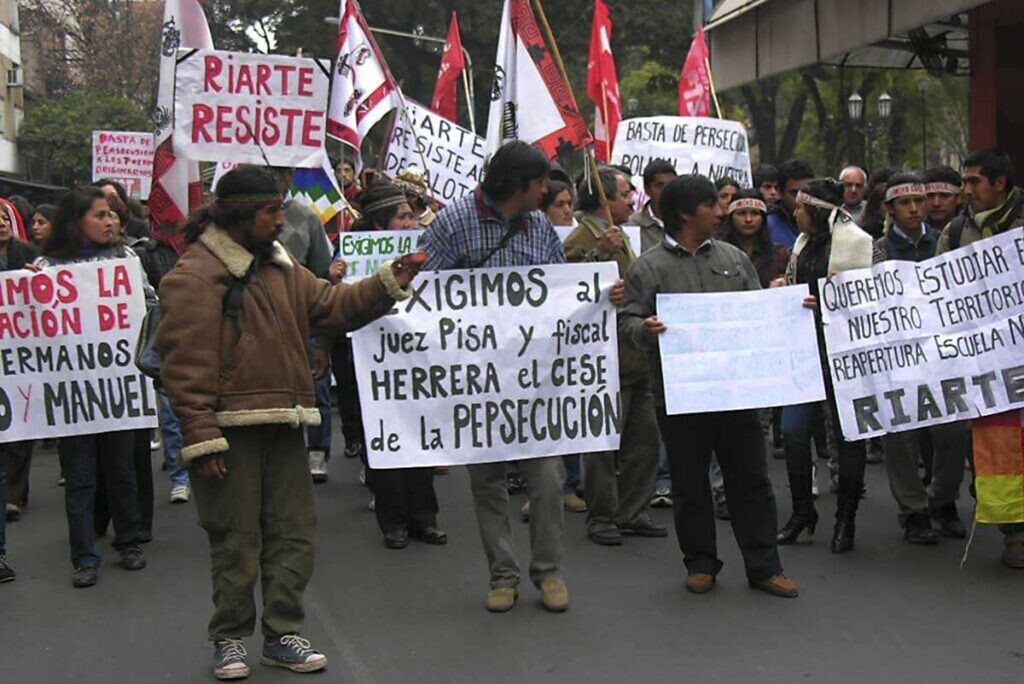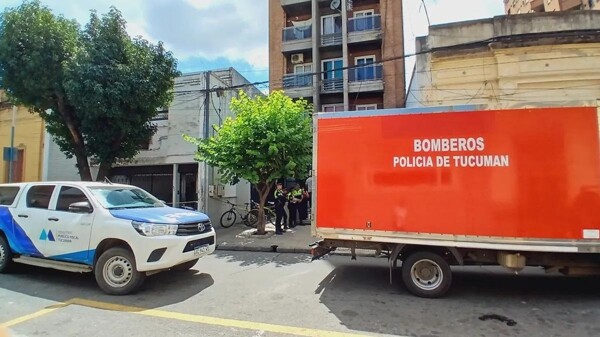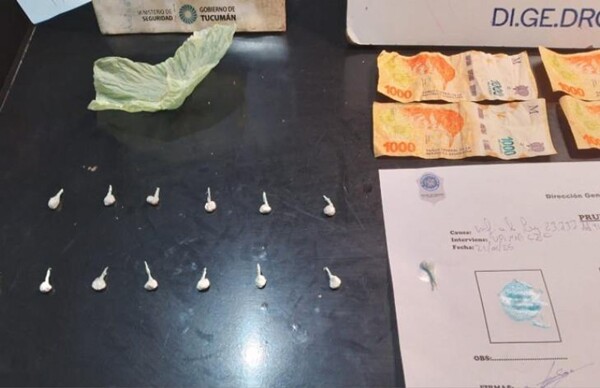
The judicial process of the 9 indigenous community members of the Indio Colalao Community of the Diaguita Nation, accused of usurpation, theft, and attempted homicide in San Miguel de Tucumán, resumes on March 6 with the final statements from the complainants and the defendants. The case has been reported as fabricated, with unfounded charges aimed at dispossessing the community of its ancestral territory for the benefit of soybean landowners.
"We are suffering a hunt in the communities; we have become enemies of the State for defending the territory. They want to take our territory away, and that’s why we are enemies, and that's why they invent these types of cases that today affect Indio Colalao," denounced Alejo Azar, secretary of the Union of Indigenous Peoples of the Diaguita Nation of Tucumán. The community members face these serious charges without strong evidence, as part of the growing criminalization of indigenous peoples throughout the country.
The Indio Colalao Community has been subjected to harassment and attacks for some time, such as the murder of Cacique Chocobar in October 2020. The Diaguita Union argues that the trial should not be criminal but civil, in accordance with the National Constitution and the ruling of the Inter-American Court of Human Rights, which urges the Argentine State to recognize the territorial titles of indigenous communities.
Despite the INAI recognizing the community possession of the ancestral territory, it continues to be pursued and stripped of its rights, violating international agreements and treaties that protect environmental defenders. The involved landowners seem to be seeking the benefits of extractivism in a region prone to the exploitation of transgenic soybean agriculture.
During the process, a series of irregularities have been evidenced, such as inconsistent medical evidence, lack of access to emergency services due to blockades in the community territory, among other situations that highlight the inherent injustice of the case. The defense of the accused has presented evidence that contradicts the unfounded accusations, but the struggle against the criminalization of indigenous peoples continues in a context of discrimination and repression.
The trial is being conducted by a court and a Public Ministry that have been criticized for their discriminatory attitudes and for favoring the interests of landowners to the detriment of the indigenous community members. The Indio Colalao community hopes that justice will be served and that their ancestral rights will be respected amid a judicial process marked by inequality and violation of human rights.












